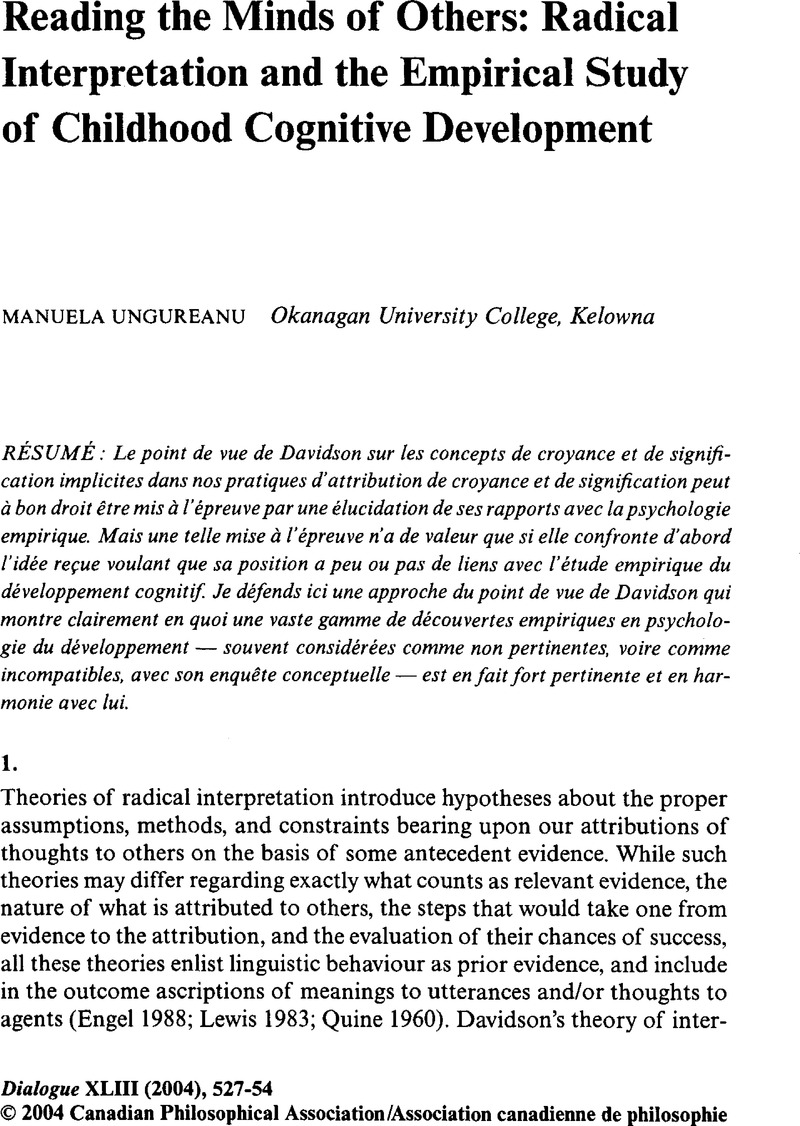Davidson, Donald 1973b “The Material Mind.” In
The Proceedings of the Fourth International Congress of Logic, Methodology and Philosophy of Science Section 9:
Methodology and Philosophy of Psychological Sciences. Edited by
Suppes, P.,
Henkin, L.,
Moisil, G. C., and
Joja, A..
Amsterdam:
North-Holland Publishing Company. (Reprinted in his
Essays on Actions and Events [Oxford: Clarendon Press, 1980], pp. 245–60.
Google Scholar 